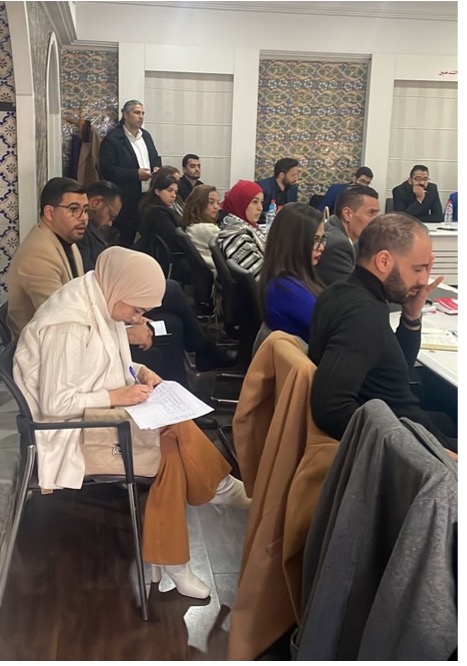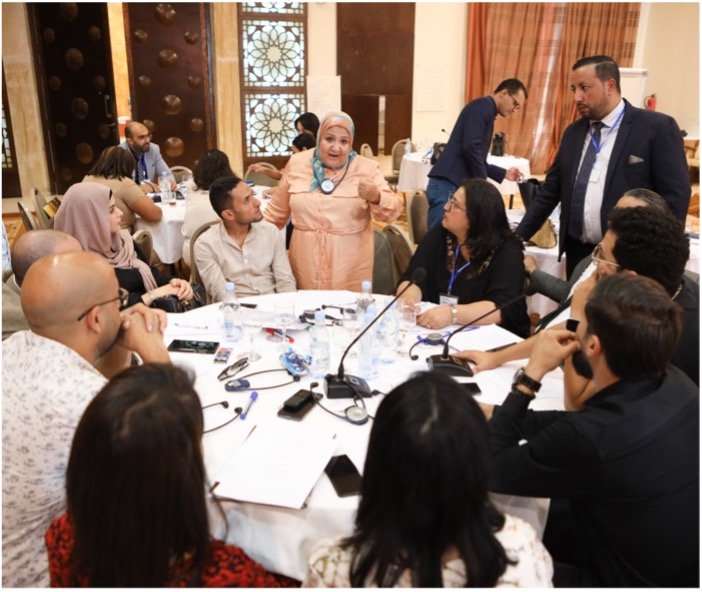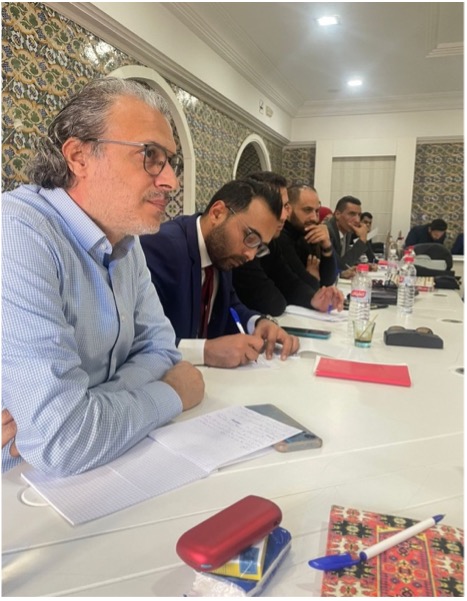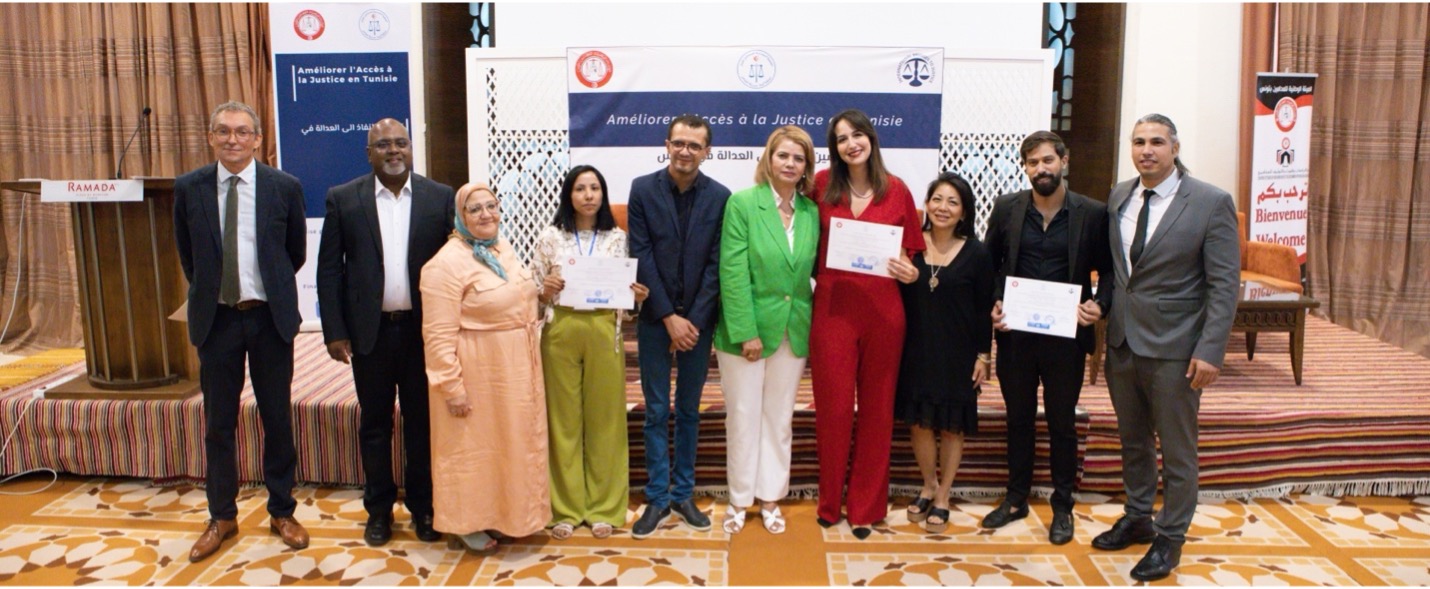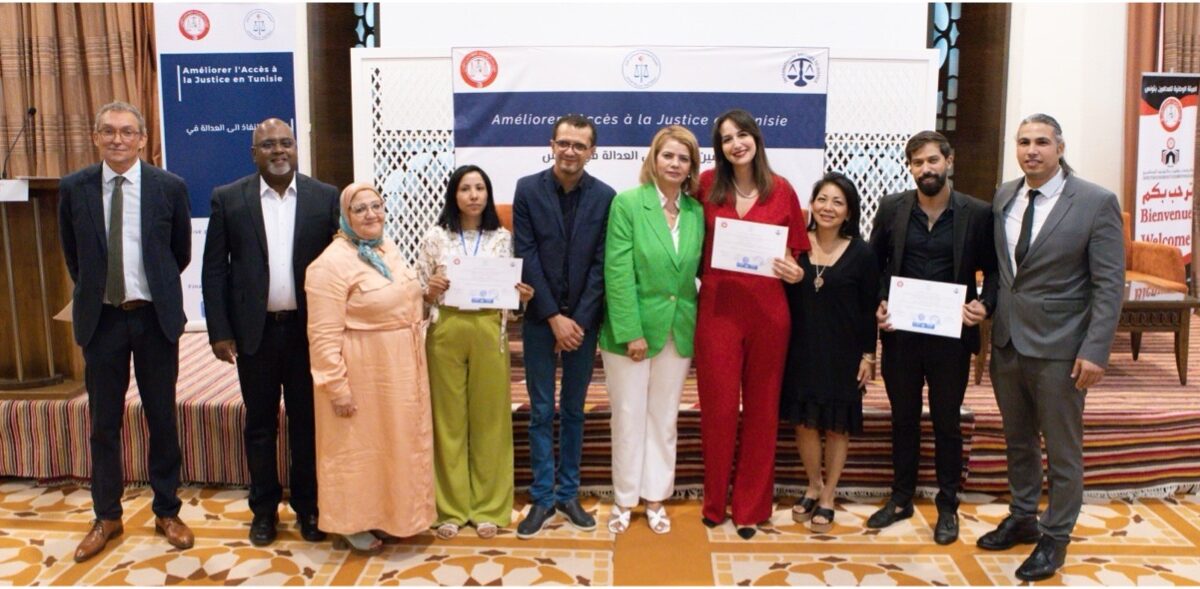
In the first part of 2025, IBJ proudly completed its two-year Advancing Access to Justice Tunisia (AAJT) project, made possible with support from The United Nations Democracy Fund (UNDEF). This initiative aimed to improve legal representation for marginalized communities, promote gender inclusivity within the legal profession, and strengthen defenders’ capacity to advocate effectively for vulnerable accused individuals.
In particular, the AAJT project focused on three core pillars: training, legal representation, and awareness.
First, IBJ trained legal defenders to build their skills in representing accused individuals from vulnerable communities. The program targeted young lawyers in Tunis and was delivered through four group sessions, covering key topics such as international standards on the rights of accused persons, responsibilities of defense lawyers, Tunisian legal practices, and interview techniques for tortured or traumatized clients. Participants gained practical skills that prepared them to address the complex challenges of criminal defense work.
Across these sessions, IBJ worked directly with 115 lawyers to strengthen their skills in criminal defense and rights-based representation, focusing especially on defending marginalized individuals. Women accounted for 56% of participants. Although the trainings were short-term, they provided practical tools that participants could immediately apply in their defense work. In post-training surveys, 100% of respondents reported increased confidence in their criminal defense knowledge. This demonstrates the program’s role in building the technical capacity of a more diverse group of legal defenders committed to serving vulnerable communities.
To support lasting impact, IBJ also developed the Tunisia Criminal Defence Practice Manual, which contains detailed, locally relevant guidance for lawyers at each stage of the litigation process. The Manual incorporates insight from diverse justice-sector stakeholders in Tunisia. It is available online, and IBJ has distributed 1,000 physical copies across the country.
Second, AAJT sought to improve respect for due process and fair trial rights by facilitating early access to justice. After the training program concluded, IBJ formed a task force of lawyers who went on to represent 256 marginalized accused individuals by February 2025, exceeding the original goal of 250 cases. Thanks to collaboration with Forum Tunisien des Droits Économiques et Sociaux (FTDES) and the Young Lawyers’ Association of Tunisia (ATJA), the task force was able to reach vulnerable communities throughout Tunisia. IBJ also worked with civil society leaders and local partners to launch the Tunisian JusticeHub app in April 2024. This tool helped lawyers manage cases more efficiently through integrated case calendars and task management features, supporting access to legal services.
Third, AAJT worked to raise public awareness of due process rights under Tunisian and international human rights law. In September 2023, IBJ and UNDEF successfully launched the Rights Awareness Campaign in Tunis, shining a spotlight on defendants’ rights. Starting in May 2024, IBJ partnered with the U.S.-based National Center for State Courts (NCSC) and the Institut Arabe des Droits de l’Homme (IADH) to air and rebroadcast four radio episodes on the rights of the accused, and launch a Know Your Rights social media campaign. IBJ also worked with an influencer specializing in legal awareness to create short social media thematic shows. In total, the Rights Awareness Campaign reached an estimated 30,000 to 90,000 people via radio, and over 850,000 via social media, surpassing the original target of 500,000.
Overall, the AAJT project has made a meaningful impact on Tunisia’s legal community by enhancing the skills of defenders and broadening access to quality legal representation for vulnerable populations. By equipping legal professionals with practical tools and a deeper understanding of the rights of the accused, the project has helped build a stronger, more inclusive justice system. At the same time, the development of vital resources and increased public awareness mark important steps toward lasting reform, creating momentum for continued progress in ensuring justice for all Tunisians.
